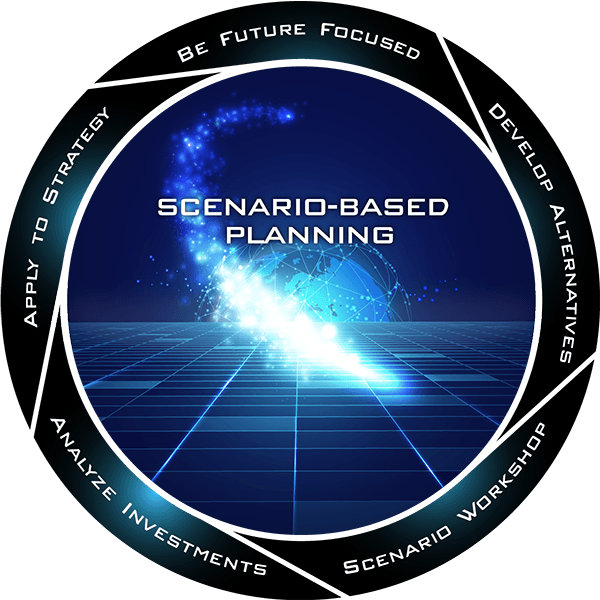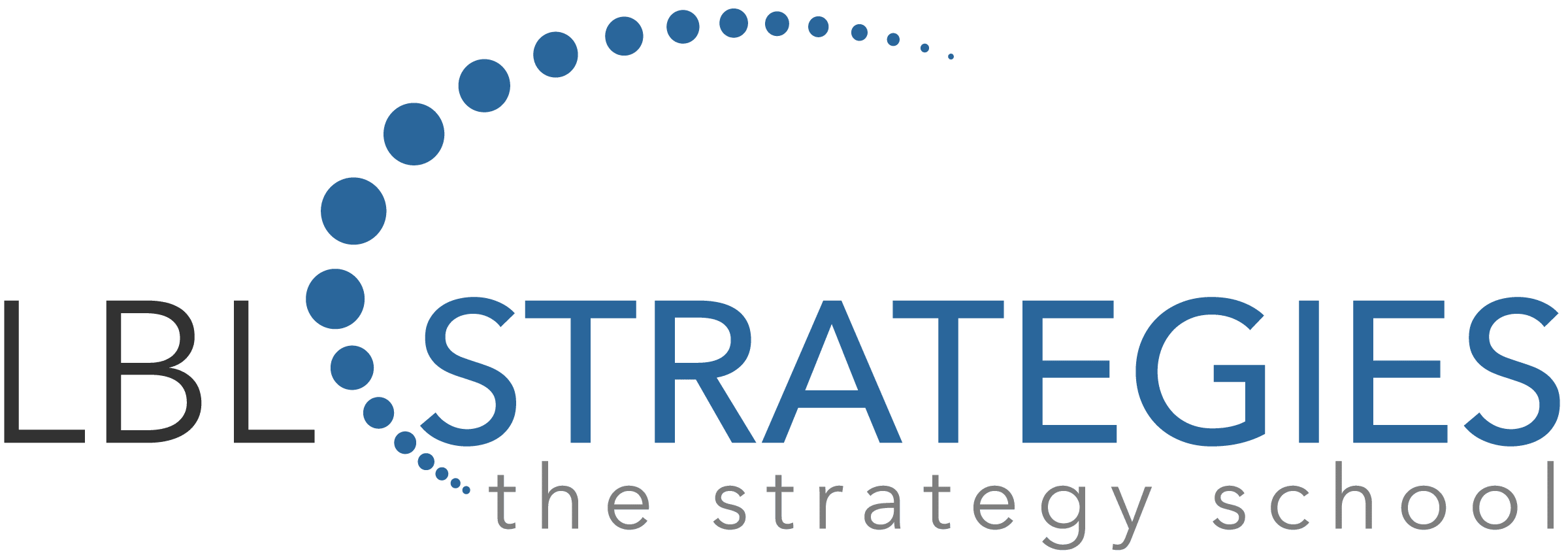Written by Robin Champ, Foresight Expert/Senior Trainer, LBL Strategies
Albert Einstein said the definition of insanity is doing the same thing over and over again and expecting a different result. We can apply the same adage to strategy. If we always use the same input and thought process when developing strategy, will we really get a different result? How do we prepare ourselves for an uncertain future, when we are often unaware that we are chained to our usual thought processes?
A solution widely used by organizations such as Shell oil company, and the United States Coast Guard, is scenario-based planning. This is a tool to exercise strategic foresight, but it is not the same as forecasting. And the difference is an important one. Forecasting is predicting. This is often the track we find ourselves in as organizations. We often pick the most anticipated future, predict what might happen, and plan only around that one event. We tend to use the same subject matter experts, the same background, and the same tools.
Contrarily, scenario-based planning as a foresight tool is intended to cast a wide net to the unknown future. It helps us break outside of our conventional thinking, pushing the boundaries of our thought to examine the possible, but not necessarily popular ways the future could unfold. By doing so we accept that the future is inherently uncertain, and prepare accordingly. We’re not trying to develop one particular future, but rather explore many possible futures so that we are prepared for, as opposed to predicting, what we will need to stay relevant in the years ahead.
By pushing the boundaries, we expand our thought process, fuel innovation, and stay ahead of our competition. While doing our operations well keeps us relevant today, we require innovation and strategy to keep us relevant tomorrow. As I often say, “binning” what you do is not a strategy. I challenge everyone to get truly creative in order to stay relevant in the future. Scenario-based planning is a proven technique to help.
Our Role is Evolving!
Afterword by Randall Rollinson, Founder/President, LBL Strategies
In today’s disrupted operating environment, a traditional approach to external analysis (i.e., PESTEL/SWOT) alone is not sufficient to provide the strategic foresight required to effectively inform today’s strategic planning processes.
Historically, the practice of strategic management has not included Foresight/Scenario-Based Planning as a core component, but rather as a rarely used intellectual exercise. These days are over. The environment we now face is much too complex for traditional planning approaches to effectively guide strategic decision-making.
The strategy office must evolve to take on a significant, growing, and pivotal role in helping their leadership team explore alternative “plausible” alternative futures, and identifying key capabilities required to navigate within and across those possible environments. These alternative scenarios must incorporate different assumptions about how the environmental factors may be realized. Plausible trends and other assumptions should be documented so recommendations can be reviewed periodically and theories re-tested and validated against the evolving situation.
It is important to keep in mind, scenario-based planning is not about the business of predicting the future, but rather it is a crucial discipline in identifying what can possibly occur under different scenarios. This type of foresight adds valuable input into the “traditional” environmental analyses and evaluation processes. Strategy practitioners must play a major role in facilitating this important technique of looking forward. If you or another strategy professional needs to build or hone your foresight/scenario-based planning skills and tools, we invite you to join us this fall for Mastering Foresight: Scenario-Based Planning Bootcamp.
Mastering Foresight: Scenario-Based Planning Bootcamp is offered in association with the George Washington University’s Center for Excellence in Public Leadership, part of the College of Professional Studies, and the Baldrige Foundation.


Mastering Foresight: Scenario-Based Planning Bootcamp
Want to hone your scenario-based planning skills from home? Learn how to design and run a foresight program for your organization with Mastering Foresight: Scenario-Based Planning Bootcamp, a practical application of the most widely used foresight tool, scenario-based planning.
Next program:
September 12-16, 2022 • 8:30 a.m.-4:30 p.m. EST • (Virtual via Zoom)
Mastering Foresight: Scenario-Based Planning Bootcamp is offered in association with the George Washington University’s Center for Excellence in Public Leadership, part of the College of Professional Studies, and the Baldrige Foundation.
Learn about LBL's Foresight/Scenario-Based Planning Consulting Services
